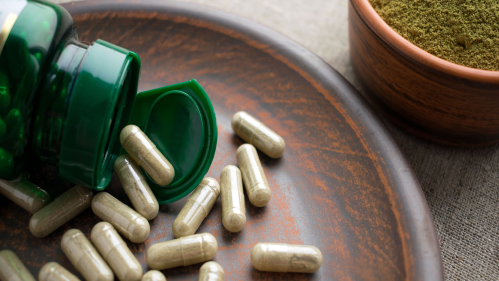Content Menu
● Understanding Green Tea Extract
>> How Green Tea Extract is Made
● Health Benefits of Green Tea Extract
● Potential Risks and Side Effects
● Who Should Avoid Green Tea Extract?
● Scientific Evidence on Safety
● How to Use Green Tea Extract Safely
● Conclusion
● FAQ
>> 1. What are the main benefits of green tea extract?
>> 2. Can green tea extract cause liver damage?
>> 3. How much green tea extract is considered safe?
>> 4. Are there any side effects associated with green tea extract?
>> 5. Should pregnant women take green tea extract?
● Citations:
Green tea extract has gained immense popularity as a dietary supplement due to its purported health benefits, including weight loss, improved heart health, and antioxidant properties. However, concerns about its safety, particularly regarding potential liver damage and other adverse effects, have emerged. This article delves into the risks associated with green tea extract, exploring its benefits, the populations at risk, and the scientific evidence surrounding its safety.
Understanding Green Tea Extract
Green tea extract is derived from the leaves of the Camellia sinensis plant and is rich in antioxidants, particularly catechins. The most notable catechin in green tea is epigallocatechin gallate (EGCG), which is believed to be responsible for many of its health benefits. Green tea extract is available in various forms, including capsules, powders, and liquid extracts.

How Green Tea Extract is Made
The process of making green tea extract involves several steps:
- Harvesting: Fresh leaves are picked from the Camellia sinensis plant.
- Steaming or Pan-Firing: The leaves are quickly steamed or pan-fired to prevent oxidation, preserving their green color and beneficial compounds.
- Drying: The leaves are dried to remove moisture.
- Grinding: Once dried, the leaves can be ground into a fine powder or processed into a concentrated liquid form.
This careful processing helps maintain the integrity of the antioxidants and other beneficial compounds present in green tea.
Health Benefits of Green Tea Extract
1. Antioxidant Properties: Green tea extract is renowned for its high antioxidant content. Antioxidants help combat oxidative stress in the body, which can lead to chronic diseases. Antioxidants neutralize free radicals—unstable molecules that can damage cells and contribute to aging and disease.
2. Weight Loss: Some studies suggest that green tea extract can aid in weight loss by increasing fat oxidation and enhancing metabolic rate. The thermogenic properties of EGCG may promote fat burning during exercise and at rest.
3. Heart Health: Regular consumption of green tea extract may improve heart health by reducing LDL cholesterol levels and improving blood vessel function. Research indicates that green tea can enhance endothelial function, which is crucial for maintaining healthy blood circulation.
4. Blood Sugar Regulation: Green tea extract may help regulate blood sugar levels and improve insulin sensitivity. This effect could be beneficial for individuals with type 2 diabetes or those at risk of developing it.
5. Cancer Prevention: Preliminary research indicates that the antioxidants in green tea may have protective effects against certain types of cancer. Studies have suggested that EGCG may inhibit tumor growth and reduce the spread of cancer cells.
6. Cognitive Function: Some research suggests that green tea extract may enhance cognitive function and protect against neurodegenerative diseases like Alzheimer's and Parkinson's disease. The anti-inflammatory properties of EGCG could contribute to these protective effects.
7. Skin Health: Green tea extract is often used in skincare products due to its anti-inflammatory properties. It may help reduce acne, improve skin elasticity, and protect against UV damage.
Potential Risks and Side Effects
Despite these benefits, there are significant concerns regarding the safety of high-dose green tea extract:
1. Liver Damage: There have been reports linking high doses of green tea extract to liver toxicity. Symptoms of liver damage can include jaundice (yellowing of the skin and eyes), nausea, abdominal pain, and fatigue. Research indicates that individuals with certain genetic predispositions may be at higher risk for liver damage when consuming these supplements.
2. Caffeine Sensitivity: Green tea contains caffeine, which can cause side effects such as anxiety, insomnia, and irritability in sensitive individuals or when consumed in large quantities. People who are sensitive to caffeine should monitor their intake carefully.
3. Gastrointestinal Issues: Some users report gastrointestinal discomfort, including nausea and diarrhea, particularly when taking concentrated extracts on an empty stomach. Taking supplements with food may help mitigate these side effects.
4. Drug Interactions: Green tea extract can interact with various medications, including anticoagulants (blood thinners) like warfarin and certain antidepressants, potentially altering their effectiveness or increasing side effects. It's crucial for individuals on medication to consult their healthcare provider before starting any new supplement regimen.
5. Other Health Risks: High doses of green tea extract have been linked to increased heart rate and blood pressure in some individuals. Those with pre-existing heart conditions should be cautious when considering supplementation.

Who Should Avoid Green Tea Extract?
Certain populations should exercise caution or avoid green tea extract altogether:
- Individuals with pre-existing liver conditions or those taking medications that affect liver function should avoid high doses of green tea extract due to the risk of hepatotoxicity.
- Pregnant or breastfeeding women should consult healthcare providers before using green tea extracts due to potential risks associated with caffeine and other compounds found in the supplement.
- People with caffeine sensitivity or anxiety disorders may experience exacerbated symptoms when consuming products containing caffeine.
- Those taking medications that interact with caffeine or other components found in green tea should seek medical advice prior to use.
- Individuals undergoing surgery should stop taking green tea extract at least two weeks before their procedure due to its potential blood-thinning effects.
Scientific Evidence on Safety
Recent studies have highlighted the potential risks associated with high doses of green tea extract:
- A study published by Rutgers University found that long-term use of high-dose green tea extracts could lead to liver damage in a small percentage of users, particularly those with specific genetic variations.
- Reports have documented cases of acute liver failure linked to concentrated green tea supplements, emphasizing the need for caution among consumers.
- The United States Pharmacopeia has suggested warnings about potential hepatotoxicity on products containing high doses of green tea extract.
- A systematic review indicated that while moderate consumption of brewed green tea is generally safe for most people, concentrated extracts pose a higher risk for adverse effects due to their potency.
How to Use Green Tea Extract Safely
If you decide to incorporate green tea extract into your diet, consider these safety tips:
- Start Small: Begin with a lower dose to assess your tolerance before gradually increasing it if needed.
- Choose Quality Products: Look for reputable brands that provide third-party testing for purity and potency.
- Consult Healthcare Providers: Always discuss new supplements with your healthcare provider, especially if you have underlying health conditions or are taking medications.
- Monitor Your Body's Response: Pay attention to how your body reacts after taking green tea extract; discontinue use if you experience any adverse effects.
- Stay Hydrated: Ensure adequate hydration when consuming caffeinated products to minimize potential side effects such as jitteriness or anxiety.
Conclusion
While green tea extract offers several health benefits due to its antioxidant properties and potential weight loss effects, it is crucial to approach its use with caution. High doses can pose significant risks, particularly concerning liver health. Individuals considering green tea extract should consult healthcare professionals to assess their personal risk factors and determine safe usage levels.

FAQ
1. What are the main benefits of green tea extract?
Green tea extract is known for its antioxidant properties, potential weight loss benefits, improved heart health, blood sugar regulation, cognitive enhancement, cancer prevention properties, and skin health benefits.
2. Can green tea extract cause liver damage?
Yes, high doses of green tea extract have been linked to liver toxicity in some individuals, particularly those with specific genetic predispositions or pre-existing liver conditions.
3. How much green tea extract is considered safe?
The recommended dosage varies by product but generally ranges from 250 mg to 500 mg per day when taken as a supplement. It's essential to follow product guidelines and consult a healthcare provider for personalized advice.
4. Are there any side effects associated with green tea extract?
Common side effects include gastrointestinal discomfort (nausea or diarrhea), headaches due to caffeine sensitivity, increased heart rate or blood pressure issues, and potential interactions with medications affecting blood pressure or anticoagulants.
5. Should pregnant women take green tea extract?
Pregnant women should consult their healthcare provider before using green tea extract due to potential risks associated with caffeine and other compounds found in the supplement.
Citations:
[1] https://www.webmd.com/vitamins/ai/ingredientmono-960/green-tea
[2] https://www.rutgers.edu/news/green-tea-extract-may-harm-liver-people-certain-genetic-variations
[3] https://www.alamy.com/stock-photo/green-tea-extract.html
[4] https://www.youtube.com/watch?v=6-2FJMtvcNA
[5] https://www.urmc.rochester.edu/encyclopedia/content?contenttypeid=19&contentid=GreenTeaExtract
[6] https://files.nccih.nih.gov/green-tea-steven-foster-square.jpg?sa=X&ved=2ahUKEwiC9rKo3quKAxXel-4BHQ0bBn4Q_B16BAgEEAI
[7] https://www.freepik.com/free-photos-vectors/green-tea-extract
[8] https://www.youtube.com/watch?v=eMuE16vLV_s
[9] https://pmc.ncbi.nlm.nih.gov/articles/PMC3746392/
[10] https://www.medicalnewstoday.com/articles/269538






























